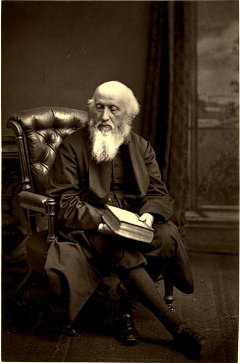fleer
v. to smile contemptuously
maledicent
adj. given to evil-speaking; slanderous
malison
n. a curse
fleer
v. to smile contemptuously
maledicent
adj. given to evil-speaking; slanderous
malison
n. a curse
If the English names of the natural numbers are spelled out consecutively, what letter occurs most frequently? In 1981 Frank Rubin showed that I never overtakes E in this race. When we reach NINE HUNDRED NINETY-NINE, the letter E has appeared 3,130 times, while I has appeared only 1,310. After NINE HUNDRED NINETY-NINE THOUSAND NINE HUNDRED NINETY-NINE, each of the names ONE through NINE HUNDRED NINETY-NINE has appeared 1,000 times to the left of the word THOUSAND and 999 times to the right, so at the ONE MILLION mark I has appeared 2,620,000 times and E 6,260,000.
When we reach ONE BILLION, I has had a bit of a boost by appearing 1,998,000,000 times in the word MILLION, but it’s not enough: At this point E has appeared 9,390,000,000 times and I only 5,928,000,000.
The gap is never closed. It narrows if an -illion word has two or more Is and no Es, but if E also appears (SEXTILLION, SEPTILLION) then it widens. I makes its closest approach at ONE SEXTILLION, when we’ve racked up 2.0159 × 1022 Is and 2.191 × 1022 Es.
In fact, the only letters that ever surpass E, anywhere in the sequence, are O at the end of TWO and T before THREE is spelled out.
(“Colloquy,” Word Ways, November 1981)
Excerpts from an Independence Day oration by Nashville attorney Edwin H. Tenney to the Young Men’s Association of Great Bend, Tenn., July 4, 1858:
“What does he mean by ‘blowing up the ramparts of beauty?'” wondered the Daily Alta California. “The obscurity can’t be in the writer, and must therefore lie in our own ignorance. Still we ask — what are the ramparts of beauty?”
nefandous
adj. not to be spoken of, unmentionable
tacenda
n. things to be passed over in silence
In 1975 Phoebe Winch discovered that the 100 standard Scrabble tiles reveal a hidden message:
I AM DIETING. I EAT QUINCE JELLY. LOTS OF GROUND MAIZE GIVES VARIETY. I COOK RHUBARB AND SODA, WEEP ANEW, OR PUT ON EXTRA FLESH.
I wonder how well it works …
St. Louis teacher William Kottmeyer compiled this list of “spelling demons” in 1973. Which of these words is misspelled?


ughten
n. the part of the night immediately before daybreak
Edward Gorey’s pen names included Ogdred Weary, Raddory Gewe, Regera Dowdy, D. Awdrey-Gore, E.G. Deadworry, Waredo Dyrge, Deary Rewdgo, Dewda Yorger, and Dogear Wryde. Writer Wim Tigges responded, “God reward ye!”

William Barnes (1801-1886) loved language too well. He had written poetry in Standard English from an early age, but in his 30s he switched to the local Dorset dialect, which he felt was more linguistically pure:
Oh! it meäde me a’most teary-ey’d,
An’ I vound I a’most could ha’ groan’d —
What! so winnèn, an’ still cast azide —
What! so lovely, an’ not to be own’d;
Oh! a God-gift a-treated wi’ scorn
Oh! a child that a squier should own;
An’ to zend her awaÿ to be born! —
Aye, to hide her where others be shown!
A philological scholar, he had come to feel that Dorset speech, true to its Anglo-Saxon origins, was the least corrupted form of English, and best suited to paint scenes of rural life. “To write in what some may deem a fast out-wearing speech-form may seem as idle as the writing of one’s name in snow on a spring day,” he wrote. “I cannot help it. It is my mother tongue, and it is to my mind the only true speech of the life that I draw.”
His contemporary admirers included Tennyson, Gerard Manley Hopkins, and Thomas Hardy, but unfortunately he was right: As Standard English increasingly outmoded his beloved dialect, his poems passed into an undeserved obscurity.
“Had he chosen to write solely in familiar English, rather than in the dialect of his native Dorsetshire, every modern anthology would be graced by the verses of William Barnes,” wrote Charles Dudley Warner. “By reason of their faithfulness to everyday life and to nature, and by their spontaneity and tenderness, his lyrics, fables, and eclogues appeal to cultivated readers as well as to the rustics whose quaint speech he made his own.”
An antigram is a word or phrase whose letters can be rearranged to produce an opposite meaning:
ABET = BEAT
ABOMINABLE = BON, AMIABLE
ADVERSARIES = ARE ADVISERS
ANTAGONIST = NOT AGAINST
BOASTING = IT’S NO GAB
COMMENDATION = AIM TO CONDEMN
CONVENTIONAL = I VOTE NON-CLAN
DEFIANT = FAINTED
DEMONIACAL = A DOCILE MAN
FASHIONABLE = FINE? HA, A SLOB!
FILLED = ILL-FED
FORBID = BID FOR
HIBERNIANS = BANISH ERIN
HOME RUN HITTER = I’M NOT RUTH HERE
HONESTLY = ON THE SLY
HONOREES = NO HEROES
INDISCRIMINATE = DISCERN AIM IN IT
INNERMOST = I NEST ON RIM
LEGION = LONE GI
NOMINATE = I NAME NOT
PROSPEROUS = POOR PURSES
ROUSING = SOURING
THOMAS A. EDISON = TOM HAS NO IDEAS
TIMBERLESS = TREES, LIMBS
WOMANISH = HOW MAN IS
Without any rearrangement at all, IMPARTIALLY can be read as I’M PART, I ALLY. And DEFENCE is DE-FENCE!